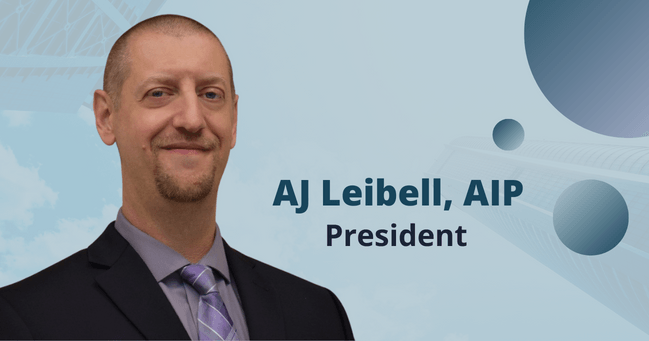Florida Apartment Building Owner Insurance
8:30am - 5:00pm Mon-Fri
Will Reply in 15min*
Top Recommended Business Insurance Policies

Index
Contact Us
Phone
Location
6900 Tavistock Lakes Blvd, Suite 400, Orlando FL 32827
Apartment building owners in Florida face numerous risks, making insurance an essential aspect of their business. Understanding the importance of insurance and the types of coverage available is crucial for protecting their investment and ensuring business continuity. In this article, we will explore the various insurance options available to apartment building owners in Florida and discuss the factors that influence their insurance needs. Additionally, we will provide tips on how to choose the right insurance provider.
Understanding the Importance of Insurance for Apartment Buildings
Owning apartment buildings in Florida comes with inherent risks, which necessitate robust insurance coverage. These risks include natural disasters like hurricanes, fire hazards, property damage, liability claims, and loss of income due to unforeseen events. Without adequate insurance, apartment building owners may face extensive financial burdens and potential legal liabilities.
Florida, known as the Sunshine State, attracts millions of residents and tourists each year with its beautiful beaches, vibrant cities, and warm climate. However, this geographical location also puts it at a higher risk of natural disasters such as hurricanes, floods, and tropical storms. The state's long coastline makes it susceptible to powerful storms that can wreak havoc on apartment buildings and other structures.
Apartment buildings are particularly vulnerable to these perils, as they often house multiple families and have a larger surface area exposed to the elements. Hurricanes, with their strong winds and heavy rain, can cause significant damage to the structure, including roofs, windows, and foundations. The force of these storms can be so powerful that it can uproot trees, damage electrical systems, and even lead to flooding.
Moreover, Florida experiences a high incidence of thunderstorms, which can lead to lightning strikes and subsequent fires. These fires can spread rapidly through apartment buildings, endangering the lives of residents and causing extensive property damage. The aftermath of such disasters can be devastating, leaving apartment building owners with a massive financial burden and the daunting task of rebuilding.
Given these risks, it is crucial for apartment building owners in Florida to have comprehensive property insurance. Property insurance covers damage to the building and its contents caused by perils such as fires, hurricanes, vandalism, and theft. It provides financial protection and peace of mind, allowing owners to recover from unforeseen events without facing crippling expenses.
In addition to property insurance, liability insurance is another essential component of insurance coverage for apartment buildings. This type of insurance protects owners from financial loss resulting from legal claims filed by tenants or third parties injured on the premises. Accidents can happen anywhere, and apartment buildings are no exception. Slip and fall incidents, electrical accidents, or even dog bites can lead to costly lawsuits. Liability insurance ensures that owners are protected from these potential legal liabilities.
Furthermore, loss of income insurance provides coverage for lost rental income resulting from an event that renders the property uninhabitable. For example, if a hurricane damages an apartment building to the extent that it becomes uninhabitable, the owner may be unable to collect rent until repairs are completed. Loss of income insurance helps bridge this financial gap, providing the necessary funds to cover ongoing expenses and mitigate the impact of the loss.
In conclusion, insurance plays a pivotal role in mitigating risks faced by apartment building owners in Florida. With the state's susceptibility to natural disasters and the potential for liability claims, having comprehensive insurance coverage is not just a wise financial decision, but a necessary one. It provides the necessary protection and peace of mind, allowing owners to focus on providing safe and comfortable living spaces for their tenants.
Types of Insurance for Apartment Building Owners
Apartment building owners need to secure multiple types of insurance to protect their investment adequately.
Investing in an apartment building can be a lucrative venture, but it also comes with its fair share of risks. From natural disasters to legal claims, there are numerous potential threats that can jeopardize the financial stability of an apartment building owner. That's why having the right insurance coverage is crucial to safeguarding their investment and ensuring peace of mind.
Property Insurance: Protecting Your Physical Assets
Property insurance covers the structure of the apartment buildings, including common areas and individual units. It also includes coverage for fixtures, appliances, and other contents. This insurance safeguards against perils such as fire, theft, vandalism, and natural disasters.
Imagine a scenario where a fire breaks out in one of the units of your apartment building. Without property insurance, you would be left with the daunting task of rebuilding and replacing all the damaged structures and belongings out of your own pocket. However, with the right property insurance policy in place, you can rest easy knowing that the financial burden of such a catastrophic event will be significantly alleviated.
Liability Insurance: Safeguarding Against Legal Claims
Liability insurance is essential for protecting apartment building owners from potential legal claims. It covers the costs associated with injuries sustained by tenants, guests, or third parties on the property. This coverage includes medical expenses, legal defense costs, and potential settlements or judgments.
Let's say a tenant slips and falls in the common area of your apartment building, resulting in a serious injury. Without liability insurance, you could be held personally responsible for the medical expenses, legal fees, and any potential compensation awarded to the injured party. However, with liability insurance, you can mitigate these financial risks and ensure that your investment remains protected.
Loss of Income Insurance: Ensuring Business Continuity
Loss of income insurance provides coverage for the interruption of rental income due to a covered event that renders the property uninhabitable. Whether it is due to a fire, flood, or other unforeseen circumstances, this insurance helps maintain cash flow and covers ongoing expenses such as mortgage payments, property taxes, and utilities.
Imagine a situation where a severe storm causes significant damage to your apartment building, making it temporarily uninhabitable. Without loss of income insurance, you would not only lose rental income but also struggle to meet your financial obligations, such as mortgage payments and property taxes. However, with the right insurance coverage, you can ensure that your business continues to operate smoothly even during challenging times.
As an apartment building owner, it is crucial to understand the various types of insurance available and their importance in protecting your investment. By securing property insurance, liability insurance, and loss of income insurance, you can mitigate the financial risks associated with unforeseen events and safeguard your apartment building for years to come.
Factors Influencing Insurance Needs
Several factors influence the insurance needs of apartment building owners in Florida. Understanding these factors is crucial for assessing the appropriate coverage levels.
Location and Environmental Factors
The geographic location of an apartment building impacts its exposure to natural disasters and climate risks. Buildings located in flood-prone areas or coastal zones are at higher risk of damage from hurricanes and storm surges. Insurance companies take into account the proximity of the building to bodies of water, as well as the elevation of the property, when determining the level of coverage needed. Additionally, the availability and quality of local infrastructure, such as flood control systems and emergency services, are considered in the insurance assessment process. Buildings located in areas with well-established emergency response systems may benefit from lower insurance premiums.
Furthermore, the surrounding environment can also affect insurance needs. For example, if an apartment building is located in an area with a high crime rate, insurance companies may require additional coverage for theft, vandalism, and other property-related crimes. On the other hand, buildings situated in safe and low-crime neighborhoods may enjoy lower insurance costs.
Building Age and Condition
The age and condition of the apartment building affect both its insurability and potential risks. Older buildings may have outdated electrical systems, plumbing, or structural issues that increase the likelihood of property damage or accidents. Insurance companies consider the building's maintenance history and any recent renovations or upgrades when determining coverage requirements. Buildings that have undergone recent renovations to improve safety features, such as fire-resistant materials, sprinkler systems, and updated wiring, may qualify for lower insurance premiums.
Additionally, the construction materials used in the building can impact insurance needs. For example, buildings constructed with non-combustible materials, such as concrete or steel, are generally considered less risky and may result in lower insurance costs compared to buildings made of wood or other flammable materials.
Occupancy and Tenant Types
The type of tenants residing in an apartment building can impact insurance needs. Factors such as the number of units, building occupancy rate, and tenant turnover rate play a role in determining coverage requirements. Insurance companies assess the potential liability risks associated with the type of tenants, such as families, students, or senior citizens, and adjust coverage accordingly. Buildings with a high turnover rate or a history of frequent tenant changes may be subject to higher insurance premiums due to the increased risk of property damage or liability claims.
Additionally, buildings with commercial tenants or higher-risk businesses may require additional liability coverage. For example, if an apartment building has retail stores or restaurants on the ground floor, the insurance needs may be higher due to the potential for slip and fall accidents, product liability claims, or property damage caused by the commercial activities.
It is important for apartment building owners to carefully consider these factors when assessing their insurance needs. By understanding the specific risks associated with their location, building condition, and tenant types, owners can ensure they have the appropriate coverage to protect their investment and mitigate potential financial losses.
How to Choose the Right Insurance Provider
Choosing the right insurance provider is crucial for obtaining comprehensive coverage and receiving reliable service. It is a decision that should not be taken lightly, as it can have a significant impact on your financial well-being and the success of your business. To help you make an informed choice, consider the following factors when selecting an insurance provider:
Evaluating Insurance Provider Reputation
Researching the reputation of insurance providers is an essential step in the selection process. One way to do this is by reading customer reviews. These reviews can provide valuable insights into the experiences of other property owners who have dealt with the insurance provider. Additionally, reaching out to other property owners and consulting industry experts can give you a broader perspective on the provider's reputation. Look for a provider with a track record of excellent customer service, prompt claims handling, and financial stability. These factors are indicators of a reliable and trustworthy insurance provider.
Assessing Coverage Options and Pricing
Obtaining quotes from multiple insurance providers is crucial for comparing coverage options and pricing. It is essential to consider the extent of coverage offered by each provider. Does it meet your specific needs and adequately protect your investment? Additionally, pay attention to deductibles, limits, and additional endorsements available. Striking a balance between adequate coverage and affordability is key. While it may be tempting to choose the cheapest option, remember that inadequate coverage can leave you vulnerable to financial losses in the event of a claim.
Understanding the Claims Process
The claims process is an aspect of insurance that you hope you never have to deal with, but it is essential to understand it nonetheless. Review the claims process outlined by prospective insurance providers. Ensure that it is straightforward and efficient, with clear instructions on how to file a claim and what to expect during the process. It is also crucial to research the provider's history of fair claims settlement. Look for a provider that has a reputation for treating their policyholders fairly and resolving claims in a timely manner. Additionally, inquire about the availability of 24/7 claims assistance. Emergencies can happen at any time, and having access to prompt support can make a significant difference in mitigating potential damages.
Apartment building owners in Florida must prioritize insurance to protect their investment and mitigate risks. Understanding the importance of insurance, exploring the various coverage options, considering the factors influencing insurance needs, and choosing the right insurance provider all contribute to securing appropriate coverage. By doing so, apartment building owners can safeguard their financial well-being and ensure the long-term success of their business.
When it comes to choosing the right insurance provider, it is essential to take your time and conduct thorough research. Don't rush into a decision that could have long-lasting consequences. Consider seeking advice from insurance professionals who can provide guidance tailored to your specific needs. Remember, the right insurance provider will not only offer comprehensive coverage but also provide reliable service when you need it the most. So, take the necessary steps to make an informed choice and protect your investment.
Furthermore, it is worth mentioning that insurance providers often offer additional benefits and services that can enhance your overall experience. Some providers offer risk management resources, such as safety training programs or property inspections, to help you identify and mitigate potential risks. Others may provide access to a network of trusted contractors and service providers, making it easier for you to handle repairs and maintenance. These value-added services can make a significant difference in the convenience and efficiency of managing your property.
Lastly, don't underestimate the importance of good communication with your insurance provider. Building a strong relationship based on trust and open communication can make the claims process smoother and more efficient. Regularly review your coverage with your provider to ensure it aligns with any changes in your property or business. By maintaining an ongoing dialogue, you can stay informed about any updates or enhancements to your policy and make adjustments as needed.








